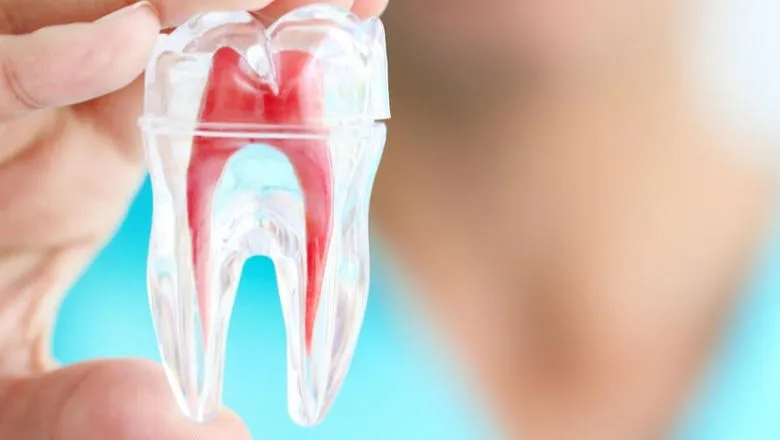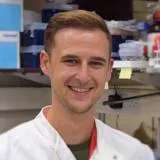14 July 2021
Harnessing cell signalling to stimulate tooth repair
In two recent publications the Sharpe/Gentleman groups report two different approaches to stimulate Wnt signalling to enhance the formation of dentine.

In two recent publications the Sharpe/Gentleman groups in the Centre for Craniofacial & Regenerative Biology report two different approaches to stimulate Wnt signalling in resident tooth cells following treatment of dental caries that enhance the formation of dentine.
Following from previous work using small molecule Wnt signalling activators to activate pulp stem cells, they describe the development of a new drug and hydrogel delivery system that allows direct injection into the tooth cavity. The new water-soluble drug is incorporated into a liquid gel that solidifies in the tooth cavity and releases the drug as the gel biodegrades.
In a separate publication in Dental Materials, they outline a novel glass ionomer cement that releases lithium ions to stimulate Wnt signalling in odontoblasts, resulting in enhanced formation of dentine. These two novel pulp capping materials are expected to enter clinical trials in the near future.
“GSK3 Inhibitor-Induced Dentinogenesis Using a Hydrogel” by Gentleman, Sharpe et al was published in the Journal of Dental Research on June 21, 2021 and is available at:
https://doi.org/10.1177/00220345211020652
“A modified glass ionomer cement to mediate dentine repair” by Gentleman, Sharpe et al was published in Dental Materials in August 2021 and can be found here:
https://www.sciencedirect.com/science/article/abs/pii/S0109564121001792?via%3Dihub



